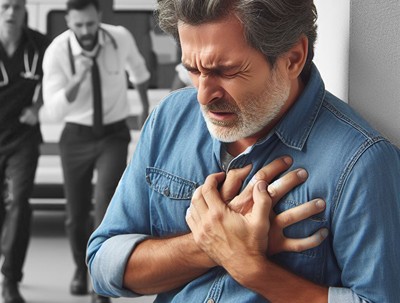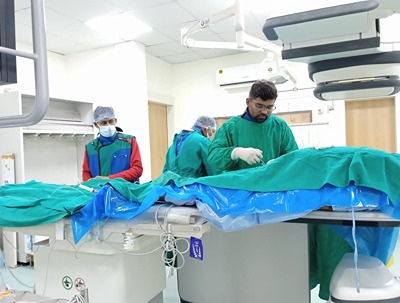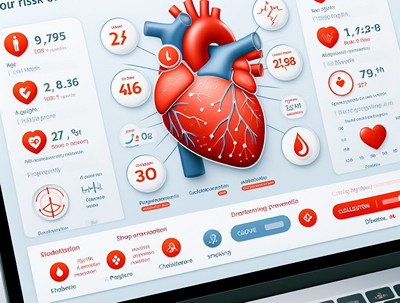Shortness of breath is a symptom that can be frightening and unsettling, but understanding its causes and knowing how to address it can empower us to take control of our health.
Shortness of breath, medically known as dyspnea, is a sensation of breathing discomfort or difficulty or abnormal awarenss of one's own breathing. It can range from mild and temporary to severe and life-threatening.
It's important to recognize that shortness of breath can stem from various sources, including cardiac issues, pulmonary conditions, or even psychological factors. As a cardiologist, I'll focus primarily on its cardiac implications in this article.
Firstly, let's understand why shortness of breath might be associated with heart problems. The heart's primary function is to pump oxygen-rich blood to the rest of the body. When the heart encounters issues such as coronary artery disease, heart failure, or abnormal heart rhythms, it may struggle to fulfill this function efficiently. Consequently, the body may not receive an adequate supply of oxygen, leading to feelings of breathlessness which involve complex biochemical and neurological processes.
Is it due to any Heart issue ?
Differentiating cardiac dyspnea from other causes can be challenging but is crucial for appropriate management. Here are some key points to consider:
- Onset and Pattern: Cardiac dyspnea often occurs suddenly or worsens gradually over time, especially with exertion or lying flat. On the other hand, dyspnea due to pulmonary causes, such as asthma or chronic obstructive pulmonary disease (COPD), may have a more gradual onset and be triggered by specific factors like allergens or respiratory infections.
- Associated Symptoms: Cardiac dyspnea may be accompanied by symptoms such as chest pain or discomfort, palpitations, fatigue, swelling in the ankles or legs (edema), and difficulty lying flat due to orthopnea or paroxysmal nocturnal dyspnea (PND). Pulmonary dyspnea may present with cough, wheezing, sputum production, and chest tightness.
- Cardiologist consultation: Your cardiologist after thorough clinical examination and history taking and with help of apropriate investigations should be able to find a cause and manage it.
So, what steps can you take if you experience shortness of breath? Here are some important points to remember:
Don't ignore it: Shortness of breath can be a warning sign of an underlying health issue, particularly if it's persistent or worsening. Ignoring it could lead to further complications.
Assess the severity: If you're experiencing mild shortness of breath during exertion, such as when climbing stairs, it might be normal. However, if it occurs suddenly or with minimal activity, it warrants attention.
Seek medical evaluation: Consult a cardiologist. They can perform tests such as an electrocardiogram (ECG), echocardiogram, or stress test to evaluate your heart's function.
Follow prescribed treatment: If a cardiac condition is identified, adhere to the treatment plan prescribed by your cardiologist. This may include medications, lifestyle modifications, or procedures to address underlying heart issues.
Lifestyle modifications: Adopting a heart-healthy lifestyle can significantly improve your heart function and reduce the risk of experiencing shortness of breath. This includes maintaining a balanced diet, engaging in regular physical activity, managing stress, quitting smoking, and limiting alcohol intake.
Monitor symptoms: Keep track of your symptoms and report any changes or worsening to your cardiologist.
Emergency action: If you experience sudden, severe shortness of breath along with other symptoms such as chest pain, fainting, or sweating, seek emergency medical attention immediately. These could be signs of a heart attack or another life-threatening condition.
In conclusion, shortness of breath is a symptom that should not be ignored, especially when it comes to matters of the heart. By understanding its potential causes and taking proactive steps to address it, we can safeguard our cardiac health and improve our overall well-being. Remember, your heart deserves the utmost care and attention.




